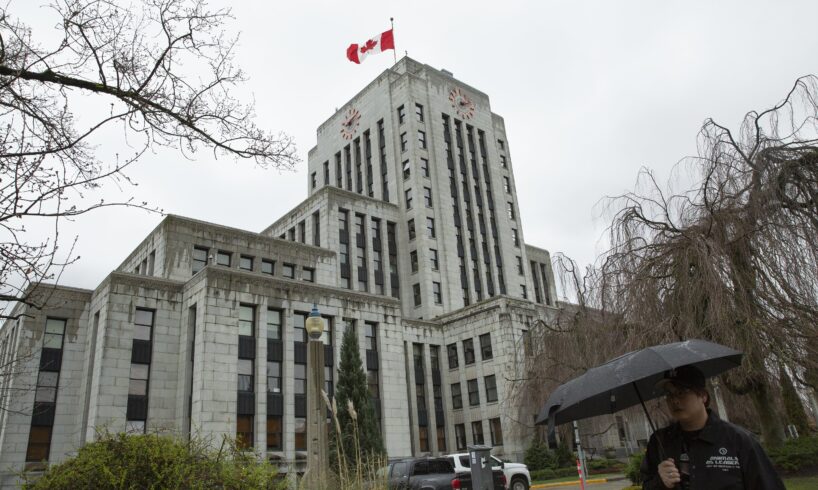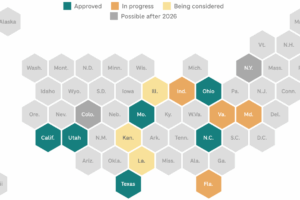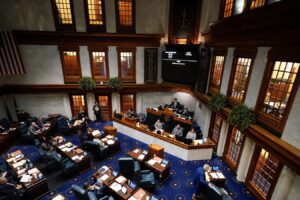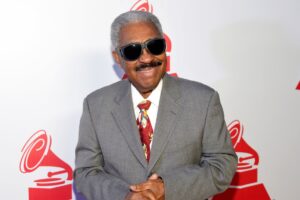
Open this photo in gallery:
Municipal voters have struggled to figure out where the local parties sit on the political spectrum because they haven’t aligned with the traditional Conservative, Liberal and NDP brands.Isabella Falsetti/The Globe and Mail
For decades, candidates for civic elections in British Columbia have held off campaigning until a couple of months before the traditional fall vote.
But this year, with more than 400 days before the scheduled Oct. 27, 2026, municipal elections, Surrey Councillor Linda Annis splashed out Wednesday with a news conference in a major hotel ballroom to announce she would be challenging Mayor Brenda Locke for her job.
Her event rolled out as smoothly as an awards ceremony, with a celebrity introduction (former hockey player Richard Brodeur), a theme song, professional campaign placards everywhere, and 100-plus supporters.
Ms. Annis bounced from attacking Ms. Locke, saying she had wasted years fighting with the province over switching to a municipal police force, to positive messages about the mayor’s ability to fight for the rapidly growing city.
Open this photo in gallery:
Surrey Mayor Brenda Locke.DARRYL DYCK/The Canadian Press
Ms. Locke did not return calls from The Globe and Mail, but commented in other media that Ms. Annis doesn’t seem to be aware of the other important issues her council has tackled.
Ms. Annis, the executive director of Metro Vancouver Crimestoppers, is not the only candidate in the province launching an early campaign. There is already one new challenger in Vancouver, with others in Richmond, Delta and New Westminster acknowledging that they are considering something similar in their cities.
These unusually early starts are the product of a changed political landscape in B.C. civic politics, says University of British Columbia political-science professor Stewart Prest.
Not that long ago, the larger cities had established political parties that were well-known to the voting public and had the ability to raise hundreds of thousands of dollars, sometimes millions, to reinforce their brand and promote candidates.
Vancouver ethics watchdog criticizes Mayor Ken Sim’s party’s secret meetings
Many of those older parties have disintegrated, and new ones with a slew of generic names – OneCity, Safe Surrey Coalition − have popped up. Campaign-finance rules changed in 2022 to ban corporate and union donations and limit individuals to $1,200 apiece, making it a much harder slog to raise money quickly. And the role of mayors or mayoral candidates has changed, he said.
“Now, you can’t run as the face of a well-established party. Now, you have to build notoriety. And that party is much more built around the mayoral candidate,” Dr. Prest said.
Vancouver Mayor Ken Sim’s ABC party was only born in the last election and its brand was pinned on him as the potential first Chinese mayor of Vancouver and as a businessman who understood finances.
Open this photo in gallery:
Vancouver Mayor Ken Sim’s ABC party was only born in the last election.DARRYL DYCK/The Canadian Press
Now, creating a new party and launching a new mayoral candidate takes time. Although Ms. Annis is running with Surrey First, the party created by popular former mayor Dianne Watts in 2005, it has been out of power for two terms.
Municipal voters have also always struggled to figure out where the local parties sit on the political spectrum because they haven’t aligned with the traditional Conservative, Liberal and NDP brands.
Mr. Sim’s former chief of staff, experienced political campaigner and independent consultant Kareem Allam, the subject of a lawsuit by Mr. Sim, has announced he has formed a new Vancouver Liberal party and will be running for mayor.
Dr. Prest noted that the Liberal name, despite decades of attacks from both the right and left, is an enduring brand that could be appealing.
“It’s become so hard to organize that it becomes an advantage to have that Liberal brand.”
Vancouver’s plan to rezone industrial land risks shrinking areas for businesses, advocates warn
Mr. Sim declined to comment on Mr. Allam, who has criticized Mr. Sim for swinging too far right after he was elected.
Elsewhere, potential candidates are also considering early announcements to bolster their chances.
In Richmond, former police chief and current city councillor Kash Heed said he’ll be making a decision on a run for the mayor’s chair in October.
Open this photo in gallery:
Richmond Mayor Malcolm Brodie is in his 24th year in office.DARRYL DYCK/The Globe and Mail
“I recognize the need for change and I’m seriously considering it,” said Mr. Heed. Richmond Mayor Malcolm Brodie, in his 24th year in office, has been the subject of a series of negative media stories about how much money he makes at Metro Vancouver on top of his mayor’s salary, as well as accounts of big spending on entertainment at city hall.
In New Westminster, Councillor Daniel Fontaine, who has often joined with Mr. Heed in criticizing Metro Vancouver’s operations, is also looking at whether to challenge Mayor Patrick Johnstone.
Mr. Fontaine said the board of his party, New Westminster Progressives, will make an announcement on Sept. 18 about the election.
And, in Delta, Councillor Dylan Kruger, 30, who has also been critical of his mayor’s performance at council and at Metro Vancouver, said he has received a lot of support for the idea of running.
“A lot of people are pushing me in that direction,” he said. Delta council, including Mr. Kruger, voted last year to remove Mayor George Harvie, the city’s former chief administrative officer, from his positions at Metro Vancouver.
Mr. Kruger said it’s early to be making decisions, but acknowledged that “there’s no question that there’s concerns about the leadership in Delta. A lot of folks think it’s time for a change.”
But he and the others might be thinking of one more benefit to announcing early, according to Dr. Prest.
“Very clearly, [Mr. Allam] is trying to move early to scare off other candidates and to reorganize the conversation,” he said.
But that can backfire, as other groups mobilize. And the ABC party, which has been raising money and getting itself organized for four years, can’t be counted out.
“We have an ABC party that is unpopular but there is also no predictable way for a challenger to emerge,” said Mr. Prest.
Special to The Globe and Mail





